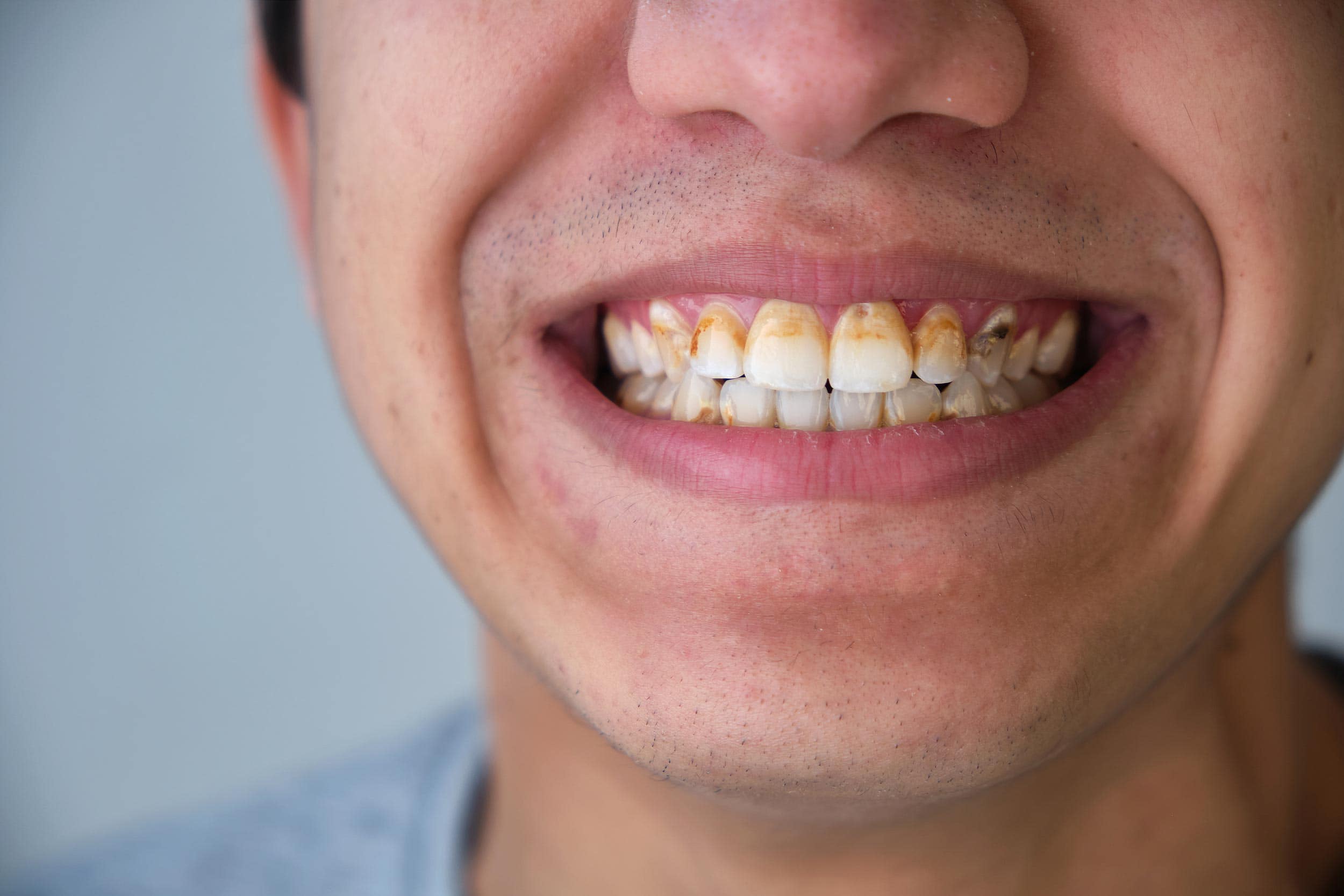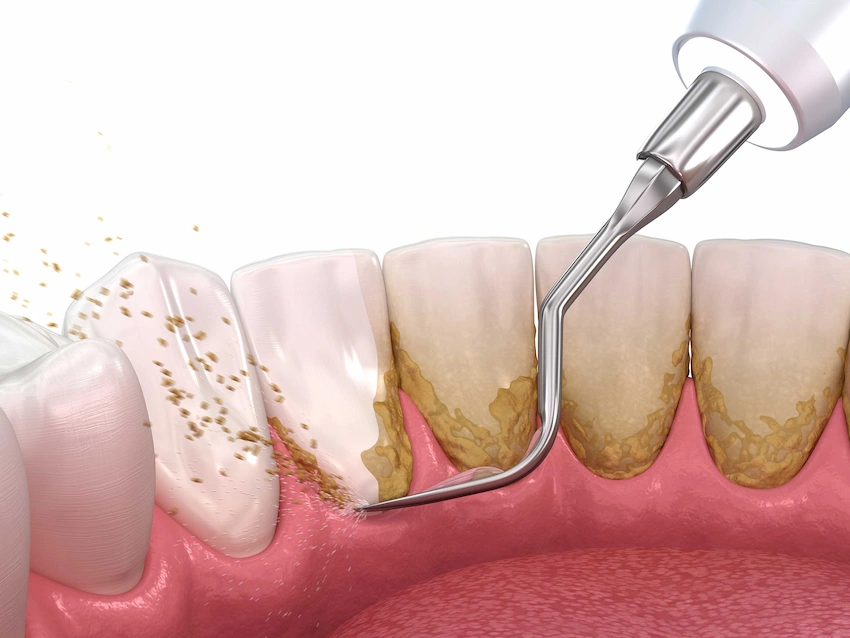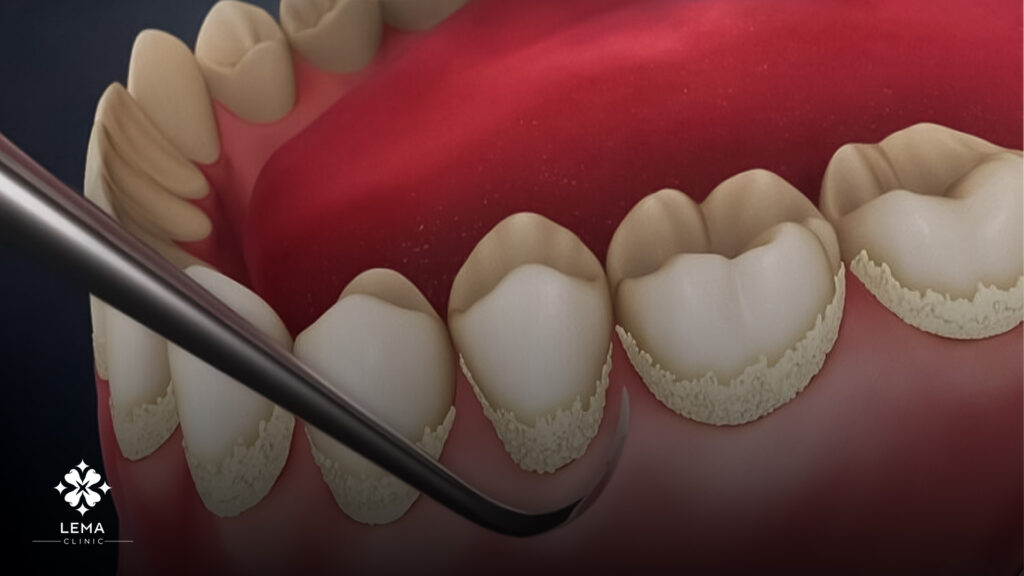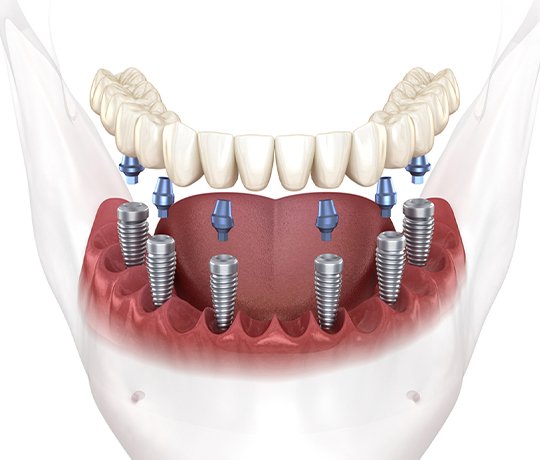🦷How To Remove Tartar From Teeth At Home

It is highly important that you take care of your oral hygiene system since it tells much about your general health as well as well-being. Do hard tartar deposits suck your enjoyment of life and lead to issues with teeth and gums? Don’t allow filthy teeth to ruin your smile and denture health.
You could remove tartar build-up easily, effectively, and affordably in your home by using natural home remedies and alternative techniques to get rid of plaque, stubborn food particles, etc. This could be a new, cheap, simple, and safe manner to promote oral health!
What Is Tartar and Why Is It Morbid?
Tartar is a whitish hard deposit on the teeth that is formed from plaque byFirst, this sticky residue from the bacteria in plaque reacts with the ions in saliva. When you brush and cleanse your mouth daily, you will be able to remove the plaque every day. Even this little deposit like the plaque combines with minerals from saliva forms the hard and dull substance that is known as the tartar.
Tartar is very hazardous to the teeth because of its additional ability to support the rough surface for new plaque to develop illegally making it very difficult for the person to keep the mouth clean. Plaque ruptures the enamel of the teeth leading to the formation of holes, inflammation, and ulceration of gums which can contribute to further mouth diseases and consequently loss of teeth.
Being a result of severe gum disease along with damage to teeth structure, tartar can lead to bad breath and passing different teeth color changes which are enough to make the person feel self-conscious and uncomfortable. By removing the tartar with these recipes, you’re constituting a foundation for a perfect set of teeth, avoiding the risk of dental dilemmas, maybe bringing back health and sparkle to your smile.
Common Signs of Tartar Build-Up on Teeth: What to Look Out For

Tartar accumulation on the teeth is a prevalent dental problem that requires our full commitment. If you are going to keep your teeth healthy and prevent dental damage, it is necessary for you to be capable of spotting the signs of tartar build-up. When you search your teeth in the mirror, or play around with your teeth, or it could be that you observe new features on the teeth of your family, friends, or acquaintances, there are some signals of tartar build-up you should look for.
- Yellow or brown stains: A buildup of tartar usually forms conspicuous yellow or brown tooth stains. Such discolorations appear where even the best toothbrush can’t reach and the residue further mixes with the bacteria to form a hard, crusty substance, a calcified deposit or calculus at the bottom of the teeth. The sooner you identify it, the better, because in the absence of treatment these stains get very stubborn and turn into a brownish color, ruining the aesthetic of your smile.
- Bad breath: One more visible feature of a tartar presence is persistent bad breath. In the case where you may notice your mouth smells unpleasant even after you have brushed your teeth or used mouthwash, it means the situation might be more serious, and you may have developed a dental problem. This is largely due to the bacteria present in the areas where tartar has formed releasing gaseous components with the bad smell that settles in the mouth and makes your breath stink.
- Gum issues: If you see swollen, red, or bleeding gums, your gum health is likely to be threatened by tartar starting to accumulate. Besides, other signs to watch out for and which mean that you have gum disease are pockets which are filled with pus and are found around teeth, as they might show a very large number of plaque substances, which indicate the formation of tartar and which might further lead to infections.
- Tooth sensitivity is a condition that is closely tied to the building up of plaque at the roots of the teeth; here, it is a bad thing for people prone to sensitive teeth. If you feel your teeth become very sensitive whenever you have drinks with very high or low temperatures or if your teeth become irritated – in that case, the tartar might have already influenced the situation.
- Observe the type of the plaque formed: Tartar accumulation usually materializes at the junction of the teeth and the gum line where it is visible. Upon examining your gums, finding visible white or yellow pieces or clusters is a sign of tartar.
These are usually tough and coarse in nature; that is, they are different from the bacteria; they are usually not tough but slimy. These types of deposits can travel up and down the tooth or be seen in any part of a tooth where it is involved.
Home Remedies that are Highly Effective for Removing Tartar from Your Teeth

Have you ever asked yourself, how do you remove tartar from your teeth? If you would want to get rid of tartar and do it today, not to spend money or take a complicated path then, obviously, this is the way to go. The most effective way of preventing dental problems is by removing the known causes of oral health, including tartar which apart from being stubborn, can lead to several health problems
Once the scale has been physically removed, the liquid is spit out into the sink after being used for a minute in the mouth. The mouth is then cleansed with warm, clean water to ensure that the rest of the fluid should not cause any oral hygiene lapse.
All the products here are juicy and fresh oranges. Juicy and fresh orange to remove the tartar and to avoid the accumulation of it, one thing that a person can do is to peel the orange’s outer layers to reach the inner soft parts and then touch it to your teeth before chucking out the paste and cleaning your teeth. The peel, also with some natural acids, removes the new layer of tartar from your enamel teeth without causing it any harm, hence safe and easy for teeth.
Frequently Asked Questions About Dental Tartar
Dental tartar, also known as calculus, is hardened plaque that forms on teeth due to the accumulation of bacteria. If left untreated, tartar can lead to gum disease and tooth decay, making it important to address it promptly.
Dental tartar forms when plaque, a sticky film of bacteria, builds up on teeth and hardens over time due to the minerals in saliva. This typically occurs if plaque is not removed through regular brushing and flossing.
Signs of dental tartar include yellow or brown staining on teeth, especially along the gum line, and bad breath. As tartar builds up, it may also cause gum irritation and bleeding when brushing.
Preventing dental tartar involves maintaining good oral hygiene by brushing twice a day with fluoride toothpaste, flossing daily, and visiting your dentist for regular cleanings. Reducing the intake of sugary foods and drinks also helps prevent plaque formation.
While regular brushing and flossing can help prevent tartar buildup, once tartar has formed, it cannot be removed at home. Professional dental cleanings by a dentist or hygienist are required to remove tartar effectively.
Dentists remove dental tartar using specialized instruments during a procedure called scaling, which involves scraping the tartar off the teeth, both above and below the gum line. In some cases, ultrasonic devices may be used to break up larger deposits of tartar.
Yes, dental tartar is harmful because it provides a surface for harmful bacteria to grow, leading to gum disease, cavities, and even tooth loss if left untreated. Tartar buildup can also cause gum recession and damage to tooth enamel.
Dental tartar is a major contributor to gum disease, as the bacteria in tartar irritate the gums, causing inflammation and infection. If not removed, tartar can lead to gingivitis and more severe periodontal disease.
To avoid tartar buildup, it is recommended to have professional dental cleanings every six months. However, individuals with a higher risk of tartar buildup may need more frequent cleanings as advised by their dentist.
Plaque is a soft, sticky film of bacteria that forms on teeth, while tartar is hardened plaque that has mineralized over time. Plaque can be removed by regular brushing, but once it hardens into tartar, professional cleaning is required.




